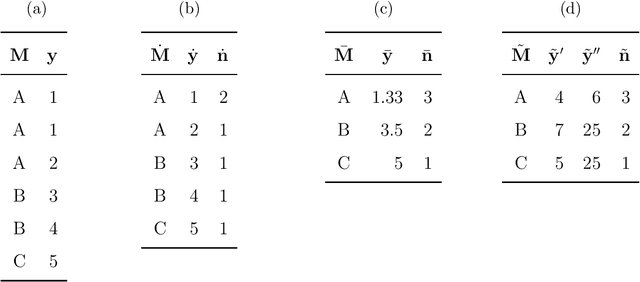You Only Compress Once: Optimal Data Compression for Estimating Linear Models
Paper and Code
Mar 03, 2021


Linear models are used in online decision making, such as in machine learning, policy algorithms, and experimentation platforms. Many engineering systems that use linear models achieve computational efficiency through distributed systems and expert configuration. While there are strengths to this approach, it is still difficult to have an environment that enables researchers to interactively iterate and explore data and models, as well as leverage analytics solutions from the open source community. Consequently, innovation can be blocked. Conditionally sufficient statistics is a unified data compression and estimation strategy that is useful for the model development process, as well as the engineering deployment process. The strategy estimates linear models from compressed data without loss on the estimated parameters and their covariances, even when errors are autocorrelated within clusters of observations. Additionally, the compression preserves almost all interactions with the the original data, unlocking better productivity for both researchers and engineering systems.
 Add to Chrome
Add to Chrome Add to Firefox
Add to Firefox Add to Edge
Add to Edge